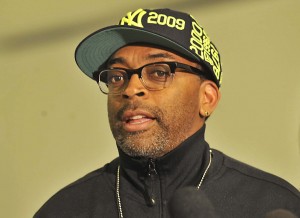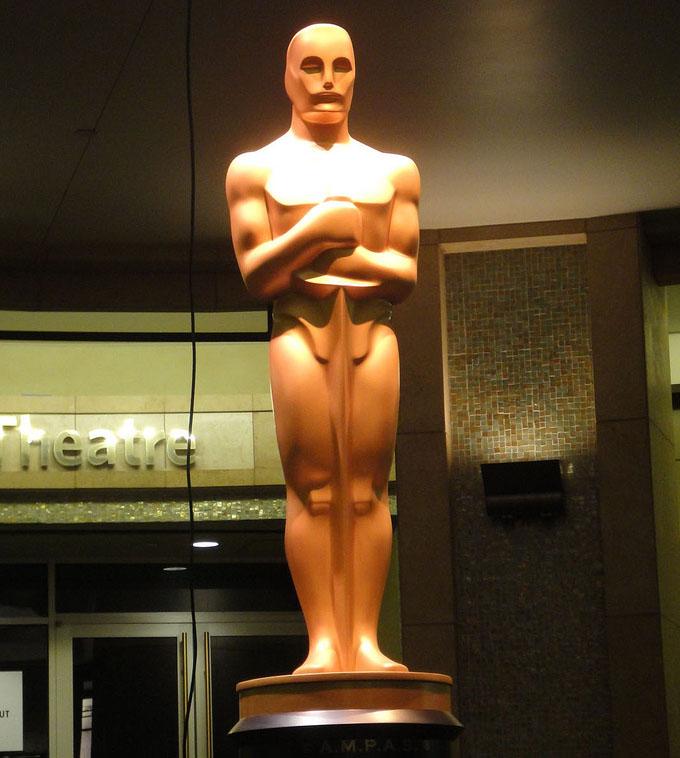Google image/Creative Commons license
For the second straight year, all 20 acting nominees are white.
Oscars so white?
The lack of diversity sparks protest
January 20, 2016
In the six days since the release of Oscar nominations for the films of 2015, the backlash over the lack of diversity among nominees has built to a fever pitch, with director Spike Lee and actress Jada Pinkett Smith saying they will boycott the ceremony on Feb. 28, while calls for host Chris Rock to quit in protest have intensified.
The hashtag #OscarsSoWhite is trending on Twitter for the second straight year because, also for the second straight year, all 20 acting nominees are white. Mr. Lee and Ms. Smith made their announcement Monday, a federal holiday honoring the birthday of Dr. Martin Luther King Jr.
“Dr. King said, ‘There comes a time when one must take a position that is neither safe, nor politic, nor popular, but he must take it because conscience tells him it’s right,’” Mr. Lee posted on Instagram.
Ms. Smith, whose husband, Will Smith, was overlooked by the Academy for his role in Concussion, posted a Facebook video to voice her concerns.
“The Academy has the right to acknowledge whomever they choose, to invite whomever they choose, and now I think it is our responsibility now to make the change,” she said. “Maybe it is time that we pull back our resources and we put them back into our communities, into our programs, and we make programs for ourselves that acknowledge us in ways that we see fit that are just as good as the so called ‘mainstream’ ones.”
Minorities in Hollywood are frustrated and feel underappreciated. After all the progress that has been made over the years, it seems they receive scant recognition for their work.
And just when the Academy seems ready to embrace diversity and move forward—such as when it elected African American Cheryl Boone Isaacs president of the body in 2013—it suddenly takes two steps back.

Director Spike Lee has announced he is boycotting the Oscar ceremony on Feb. 28.
“I am both heartbroken and frustrated about the lack of inclusion,” Ms. Boone Isaacs was quoted as saying in The Hollywood Reporter. “This is a difficult but important conversation, and it’s time for big changes.”
Others in the entertainment community weren’t so polite.
Rapper Snoop Dogg issued a simple two-word message (that can’t be repeated in a school newspaper) to the Academy through Instagram.
Two-time Oscar winner George Clooney tried to put things in perspective in an interview with Variety.
“If you think back 10 years ago, the Academy was doing a better job,” Mr. Clooney said. “I think that African Americans have a real fair point that the industry isn’t representing them well enough. I think that’s absolutely true.”
It’s the same point that film critics from The New York Times tried to make in a story headlined “Oscars So White? Or Oscars So Dumb?”
“The primary reason the Oscars are so white this year and most years is that the movie industry is overwhelmingly white,” Manohla Dargis wrote. “That’s infuriating, but that’s not shocking, and it sure isn’t news. And if that bothers people, then they need to start complaining loudly and perhaps even begin voting with their dollars.”
While many people were left disappointed by other snubs, such as director Ridley Scott’s omission for The Martian or the lack of a nomination for Johnny Depp for his role in Black Mass, these have paled in comparison to the uproar about diversity.
This extends beyond the acting categories. Only one of the nominated directors is a minority—Mexican Alejandro González Iñárritu for his work on The Revenant.
It’s not as though the Academy didn’t have options.
Besides Mr. Smith, there was John Boyega, a black actor from England who played Finn in Star Wars: The Force Awakens, not only the biggest film of the year, but the most profitable film in North American history.
Straight Outta Compton, although nominated for original screenplay, stars an almost entirely black cast and yet none of the actors were nominated for a film widely seen as a possible best picture contender (it was snubbed there, too—and it should be noted that the film’s two writing nominees, Jonathan Herman and Andrea Berloff, are white).
There was Michael B. Jordan for Creed, another film mentioned as a best picture contender. Mr. Jordan and the film’s writer-director Ryan Coogler, also African American, were overlooked—but Sylvester Stallone received a best supporting actor nomination.
The list goes on.
Mr. Rock, in the fallout, has come under fire in social media for still agreeing to host the Oscar telecast. His joke tweet, “The #Oscars. The White BET Awards,” garnered lots of replies from upset users such as, “You have a chance to send a strong message! What would MLK do? Not host. #OscarsSoWhite” (@ScottLaday), and “Why not stand up and refuse to host instead of making jokes? It never was funny and it’s not funny now” (@BlackPearlCreat).
Bottom line: In 1929, when the first Academy Awards were handed out, there was pretty much the same amount of diversity that there is now.
“You feel like we’re moving in the wrong direction,” Mr. Clooney said.

Wanda • Jan 21, 2016 at 8:22 pm
Great article. I had not heard about the boycott. Applause for Smith and Lee. This is 2016 and people of color are no more represented than in the past. There have been changes in the Emmys. Now it’s time to change the Academy.